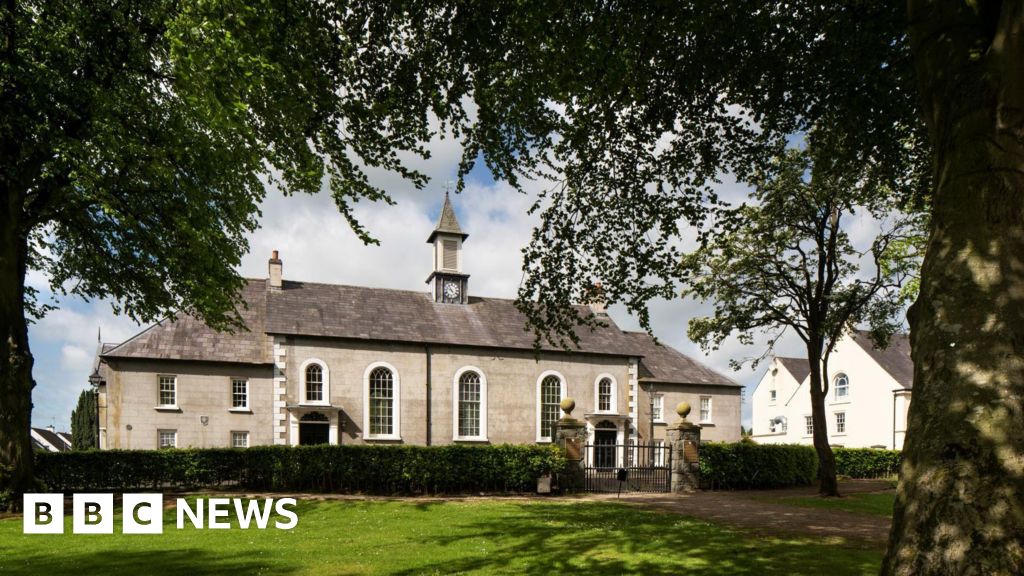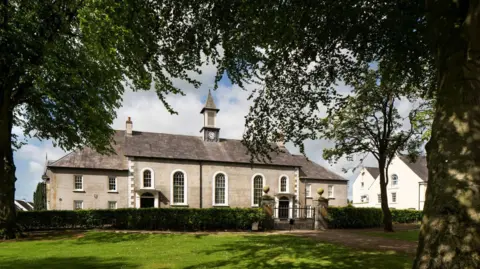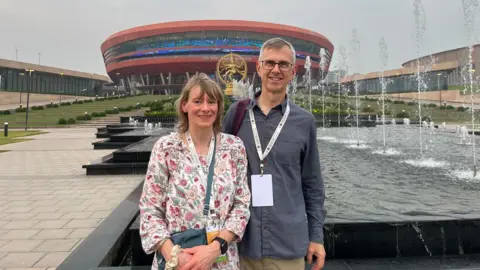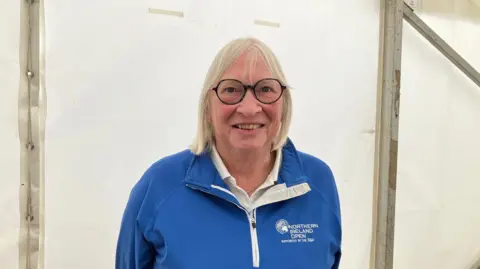World
Antrim: Moravian village Gracehill awarded World Heritage status

 PA Media
PA MediaThe Taj Mahal, the Great Wall of China, the pyramids in Egypt – and now Gracehill.
What do they all have in common?
The Moravian village in County Antrim has joined the ranks of world heritage sites across the globe after being granted special status by the United Nations Educational, Scientific and Cultural Organisation (Unesco).
The village was founded 264 years ago and is home to the only complete Moravian settlement in Ireland.
It becomes the first site in Northern Ireland to be granted cultural World Heritage status.
The Giant’s Causeway rock formation, also in County Antrim, has been a natural World Heritage site since 1986.
 David Johnston
David JohnstonThe Moravian Church, one of the earliest Protestant denominations, arrived in the UK and Ireland from central Europe in the early 18th century.
Gracehill continues to have an active Moravian community with its own bishop.
The village’s Unesco status is part of a transnational designation, which also includes Moravian sites in the United States, Germany, and Denmark.
The chairman of Gracehill Trust, David Johnston, was in the Indian capital New Delhi for the announcement by Unesco’s World Heritage Committee, along with representatives from the US, Danish, German and UK governments.
“The prize of a cultural World Heritage listing is a huge good news story for Northern Ireland as a whole, something that everyone can share in and be proud of,” he said.
Achieving this cultural status has been a process that has taken more than two decades for residents of Gracehill.
“The community have been quietly focused on working with partners, local national and international, to highlight the important heritage that exists in Gracehill,” Dr Johnston added.
“It has been a real journey both physically and metaphorically but clearly hugely worthwhile. We really consider this listing as a gift to everyone in Northern Ireland.”
‘People from nearby don’t know our history’
The Gracehill Moravian community’s bishop, Sarah Groves, is delighted that the village’s heritage is being recognised.
“After years of work, it’s both a pleasure and a relief that it has all finally paid off. The community here are thrilled,” she said.
“It shows that what we have in terms of our history, buildings, layout and archives and, also in our living culture and faith, is of local, regional and international importance.”
 Jackie Neill
Jackie NeillLocal assistant archivist Jackie Neill hopes the village’s history can now be shared more widely.
“We get people coming from all over Northern Ireland and hopefully a lot more people will come to see the village,” she said.
“Even people living as close as Ballymena have no idea about the history of the village.”
Hopes of economic boost
Mayor of Mid and East Antrim Beth Adger believes Gracehill’s new status will raise the borough’s global profile.
She said it would support the economy and have a positive effect on education, quality of life and civic pride.
“A first cultural World Heritage site for Northern Ireland is an unparalleled achievement in terms of the opportunities for domestic and international tourism,” she said.
Communities Minister Gordon Lyons welcomed the announcement as a reminder that “Northern Ireland has a fascinating heritage that is well worth exploring”.











